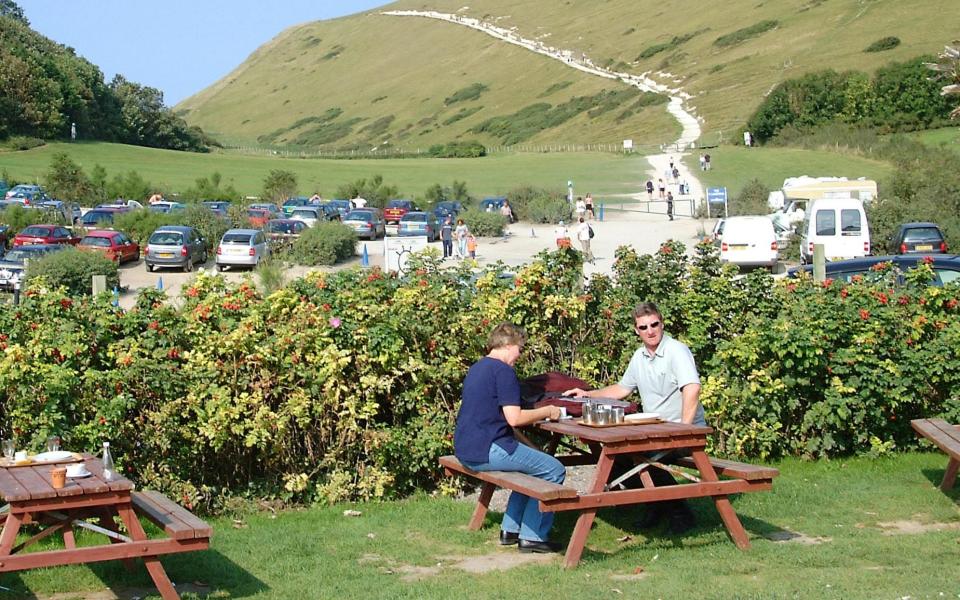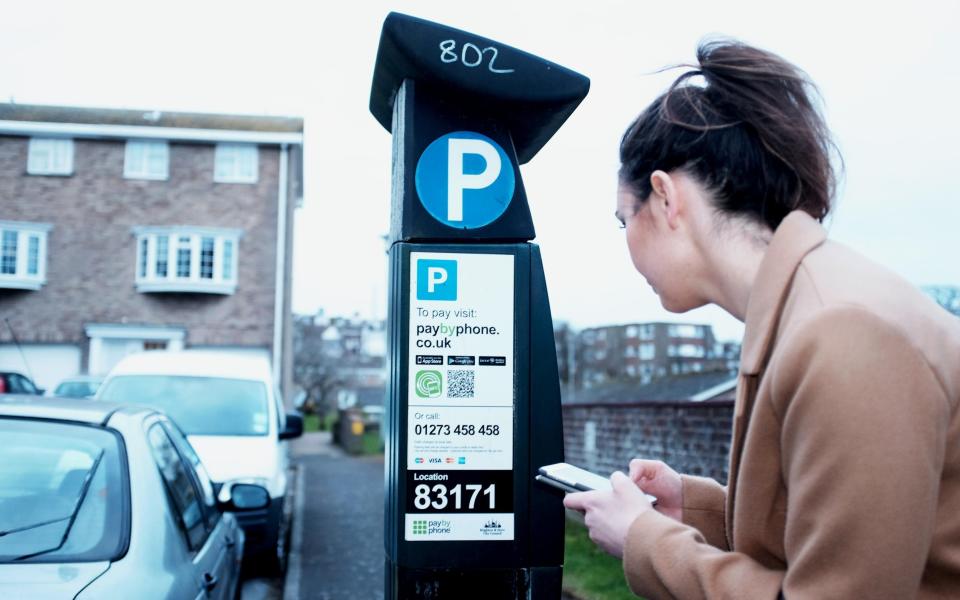The happiness you feel when you arrive in a newly discovered town, a beautiful place, or a tourist attraction and find that parking is free is as rare as it is profound.
It’s a bit sad too. You’re congratulating yourself on saving a ten quid when you should be getting ready for a bit of a drive or a refreshing walk – and the 10 minutes you spent fiddling with your phone while downloading a new app or jumping through the hoops of a phone call.
Spare a thought for visitors to Durdle Door, the limestone arch on Dorset’s Jurassic Coast. Run by the Weld family’s Lulworth Estate, drivers now pay £20 for all-day parking, a 66 per cent increase.

Visitors took to social media to express their anger. One said after a trip with her disabled 90-year-old mother-in-law: “We left after twenty-five minutes and for £10.60 less. And you have to pay an extra fee for the privilege of using the parking app! Yes, I should have done my homework first and no, I won’t be going again.”
One local resident complained:[The] “The Weld Family… are just making money. I’m not sure I’ll ever visit there again from my lovely hometown of Weymouth.”
“People will still go and pay,” said another. “If it’s boycotted and no one goes, they might consider lowering prices, but that’s not going to happen.”
The new charges have made Durdle Door one of the most expensive coastal areas in terms of parking.
Seaside pain
A recent study by Motorscan ranked the seaside towns with the most expensive parking based on the average cost of a parking space within a 30-minute walk of the city centre for eight hours. Using data collected via parking app Parkopedia, Brighton topped the list, where drivers paid an average of £24.21 a day.
Once notorious for being a hotbed of crime and corruption, the East Sussex resort is in a class of its own. The second most expensive place to park was Newquay in Cornwall, with an average parking fee of £12.32. Falmouth came in third, with visitors paying £12.12. Visitors to Southend-on-Sea in Essex paid an average of £11.50, while the average fee in Bournemouth was £10.42.


Losing the trail
Leaving your car at a train station (perhaps to reduce your carbon footprint) can be even more costly.
According to research by a car hire firm, London leads the way. St Pancras station charges £31 per day and London Bridge £38 per day. London Paddington, London Waterloo and London Victoria charge £26 per day.
But it costs £62 an hour to grab one of the 60 slots in the NCP-managed car park at Kensington Olympia train station. A full day would cost more than £500.
Outside the capital it’s generally less expensive, but some station car parks are still very expensive when you factor in local income. Glasgow Central charges £25 per day, Birmingham New Street £24 per day and Sheffield’s main station £23 per day. A delayed or cancelled train can add hefty fines to these charges.
Members only
Some National Trust sites include parking in the entrance fee. Others charge separate fees for entry and parking (unless you are a National Trust member); for example, Avebury costs £7 per vehicle in addition to the £6 entrance fee (the driving alternative involves a train and two buses from Pewsey station). Sizergh charges £13 per person to access the house and gardens, and £9 for all-day parking; the nearest train station is Oxenholme, 11 minutes (4.4 miles) away by taxi, or “a 23-minute (4.2-mile) cycle ride on mostly traffic-free rural roads”, according to its website.
The National Trust justifies its parking charges as follows: “Charging non-members for parking is one way of raising the funds we need. Fees, including fee increases, are decided and set locally by individual sites. A range of factors are taken into account when setting prices, including the fees charged by other car parks in the area, seasonal changes in visitor numbers, the views of local communities and the costs of facilities and maintenance.”
Fight back
Expensive parking is deterring local shoppers and is having a major impact on independent retailers, many of whom are desperately trying to recover from losses incurred during the pandemic. Around 150 people recently marched through the Cobbles in Sandbach, Cheshire. The local council threatened parking charges and businesses put up “closing” signs in their windows as part of the action.
Business owners in Watton, Norfolk, have launched a petition against controversial plans to introduce charges for their local car park. Breckland Council, which owns 30 car parks across five Norfolk market towns, says running and maintenance costs total £450,000 a year.


In Weymouth, where two hours’ parking can cost as much as £4.50, more than 5,700 people have signed a petition against high parking charges, which they say are ruining the coastal economy. Businessman Nigel Sims-Duff told a council cabinet meeting: “Parking charges are like parking tax and, like any tax, if they are too high, revenues will actually be reduced as people try to avoid paying.”
Drivers hate parking apps. The issue of digital exclusion has been raised at ministerial level. Everyone hates airport drop-off fees – they’ve increased at several major airports this year.
But while the AA and RAC occasionally speak out about excessive parking charges, there is no dedicated ombudsman or similar body representing car park users. What drivers get for £24 a day, £10 a day or £500 a day is often a potholed patch of ground with a few puddles, faded signs and a remote charger that won’t accept cash – and a punishing fine if they leave the theatre or cinema late.
Of course, if public transport were affordable, integrated and reliable – and heavily subsidised across the country as it is in the capital – driving would be a luxury leisure experience and drivers would accept exaggerated parking fees.
But it’s not. For many families, the only way to get to a beach, attraction or city is by private transportation. Should we really pay that much for a hike, a museum, a family outing or a view?